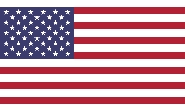Market Data

January 14, 2020
U.S. Chamber CEO Addresses State of American Business
Written by Sandy Williams
American business is facing a year of opportunity and uncertainty, says U.S. Chamber of Commerce CEO Thomas Donohue. In an address on the State of American Business, Donahue points to a “patchwork” of state rules and regulations that will stifle the free flow of goods and services if left unchecked.
Data privacy is one example where the federal government has dropped the ball. “Some of the shift in action to the states is a result of the federal government failing to set clear guidelines on issues that are best defined through a nationwide standard or policy,” said Donohue. “Can you imagine effectively running a company when you have 50 different sets of standards to comply with?”
Another challenge is the changing definitions of who should be considered an independent contractor. Proposals that change contract workers to employees are impacting Lyft and Uber drivers, independent truck drivers, construction workers, and those Americans who have added “side gigs” to make ends meet, said Donahue. “The result? The business model that has revolutionized entire sectors of the economy will screech to a halt.”
Class action suits have blossomed, driving an unprecedented wave of lawsuit abuse. “The public nuisance doctrine has become an effective tool for plaintiffs’ lawyers because it makes it easier for them to sue, denies businesses due process rights, and creates sweeping new liabilities for companies—while at the same time harming consumers and costing jobs,” said Donahue.
Another pressing concern for America is the growing skills gap and worker shortage. The Chamber’s new Worker Availability Ratio Index indicates there are now fewer available workers than open jobs across America—the tightest labor market in decades. “This is just one reason we will be pushing hard for real immigration reform,” said Donahue, “so businesses can find the workers they need, when and where they need them.”
In addition, firms are working with educational systems to expose young people to career opportunities and offer training and apprenticeships and build a pipeline of skilled workers.
America must remain a leader in the world, said Donahue. “The United States must retain its role as a champion for free trade, which is a proxy for productive relationships on many fronts. Embracing free trade doesn’t mean ignoring unfair practices aimed at us. It means leading the way in setting the rules and enforcing them, based on the simple propositions that more trade is better than less trade, more customers are better than fewer customers, and expanding markets globally will benefit everyone.”
He added, “So, let’s open more markets for American-made goods and services and create more opportunities for American businesses to grow—remember, 95 percent of the world’s customers live beyond our shores!”
Donahue also urged the administration to remain committed to multilateral organizations and trading arrangements that the U.S. helped build, such as the World Trade Organization.
“Safeguarding this institution and its dispute settlement system should be an urgent international priority,” he said. “Let’s not shutter the WTO Appellate Body. Such drastic action doesn’t serve America’s interests.”
The Chamber of Commerce “stands proudly and firmly on the side of free enterprise,” added Donahue. “If we want to create more wealth and opportunity for all Americans, the answer is more business, not less,” he said. “We need a wakeup call in this country that disincentivizing growth and disparaging corporations is no way to generate collective prosperity.”
Small and big businesses function in an integrated system with the fates entwined, said Donahue. Both private and public companies are crucial for the economy.
The government needs to make it easier to start a company. More regulation is “exactly the wrong approach,” he said. Competition, not government, intervention is needed.
There are 20 percent fewer starter companies than 30 years ago and about half as many public companies as in 1996, noted Donahue. “The more companies go public, the more investment opportunities become available to everyday Americans—and the better equipped we will be to address critical challenges like income inequality,” he said.
To tackle the downward trend, the Chamber is challenging leaders from the public and private sectors to set a national goal of 500,000 new start-ups and 250 new IPOs per year.
“Like the 32.6 million small, medium, and large businesses across America, the U.S. Chamber of Commerce doesn’t focus on what can’t be done—we focus on what must be done. We’re about the art of the possible and the imperative of leadership,” concluded Donahue. “Ladies and gentlemen, the state of American business may be uncertain, but the spirit of American business is undaunted.”







